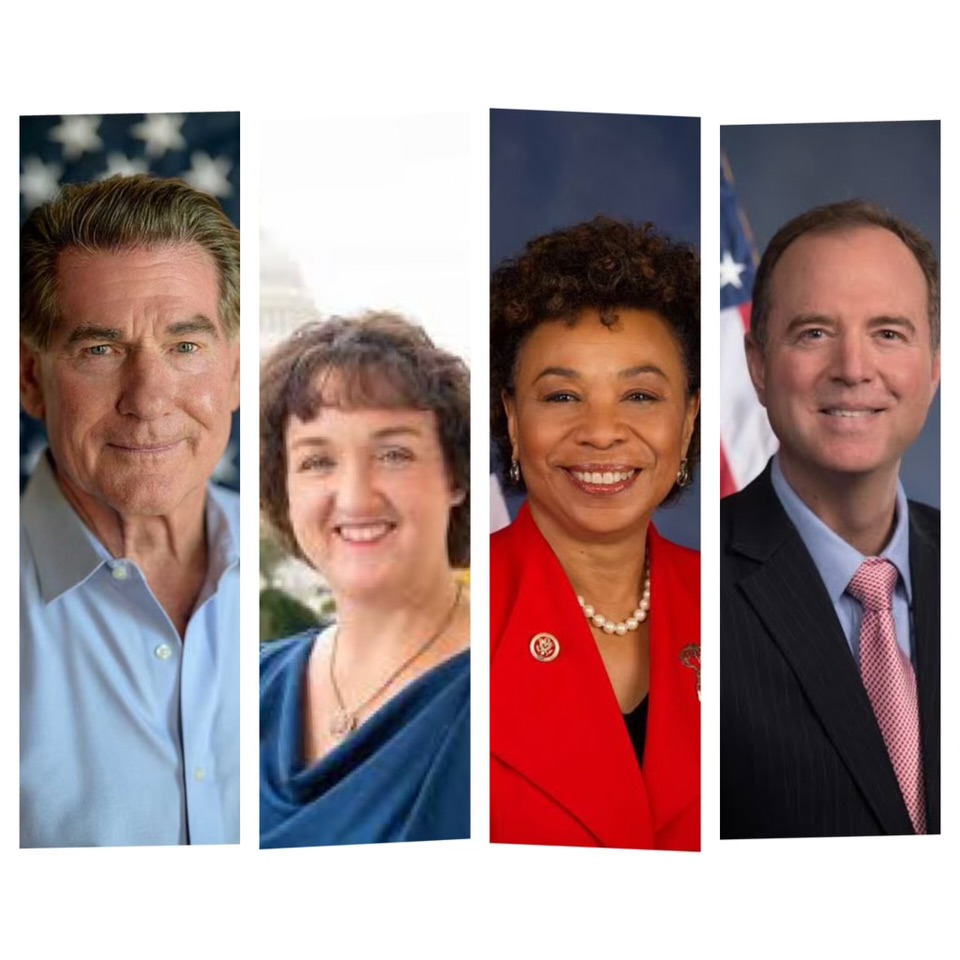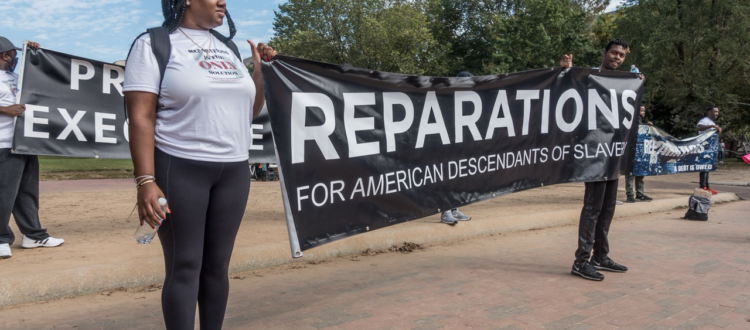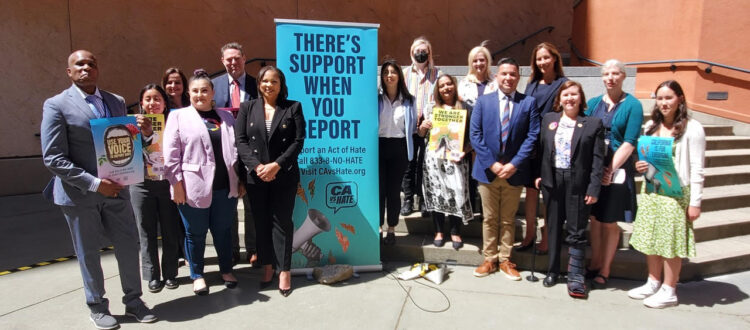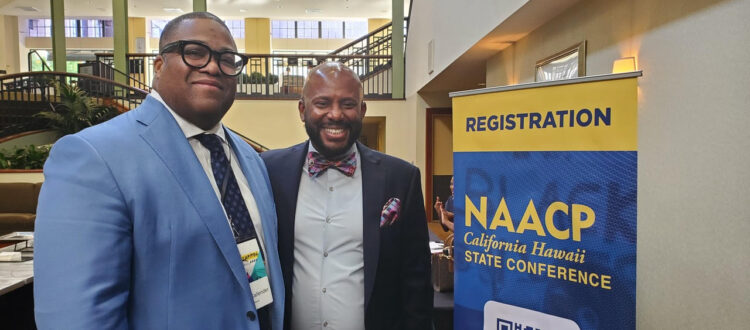Maxim Elramsisy | California Black Media
The race to succeed Sen. Dianne Feinstein, who passed away in September last year, took center stage last week at the University of Southern California with the first of two planned primary debates.
The four leading candidates contesting for the seat currently occupied by Sen. Laphonza Butler, debated in front of a live audience on Jan. 22. The two candidates with the most votes in the March 5 primary, irrespective of party, will continue to a general election contest in November.
Rep. Barbara Lee (D-CA-12), the sole African American candidate in the race, sparred with two Democratic congressional colleagues – Rep. Katie Porter (D-CA-47) an Rep. Adam Schiff (D-CA-30) – as well as Republican Steve Garvey, a former first baseman for the LA Dodgers and the San Diego Padres.
The Democrats, who agree broadly on most issues and vote together about 90% of the time in the United States Congress, tried to distinguish themselves from each other.
“I have been a consistent progressive who gets the job done, who has delivered for my constituents, and will deliver for California,” said Lee, who disagrees with Porter on earmarks. She supports them and Porter wants to get rid of them.
“Lobbyists and big corporations spend billions to make sure that their agenda is at the top of Washington, D.C.’s agenda. Special interests have too much power and we, as Californians, we don’t have enough,” said Porter, who seemed to be positioning herself as a reformer, highlighting her experience as a law professor and consumer advocate committed to changing a broken political system.
Porter told the audience that she is “the only elected official on this stage who has never taken corporate PAC money. Not a dime. Never.”
“I’m calling for an end to earmarks, outlawing corporate pact donations and lobbyist donations, and a ban on Congressmembers trading stock,” Porter said.
Lee, on the other hand, said “I believe in earmarks.”
“I believe in targeting and sending money to non-profits and organizations that deserve their federal dollars,” Lee stated.
Schiff called the audience’s attention to his record as a member of the House Select Committee that investigated the Jan. 6 attack on the U.S. Capitol and how he led the impeachment effort against President Trump.
“We have a lot of similarities in our voting record,” Schiff pointed out, referring to the three Democrats participating in the debate.
“When our country was threatened by a would-be dictator in the oval office, one of us stepped up to the middle of that fight. I took on the President,” Schiff said.
A former federal prosecutor, Schiff also emphasized his experience challenging big oil and pharmaceutical companies.
All three democrats questioned Garvey, who gave long -winded responses, but would not say whom he would vote for in the 2024 presidential election.
“Once a Dodger, always a dodger,” said Porter, alluding to Garvey’s resistance to taking a position — and to his baseball career. “This is not the minor leagues, who will you vote for?”
Avoiding direct answers to questions, Garvey, instead, talked up his leadership traits and vision for bringing some balance to the predominance of the Democratic Party in state politics.
“I’m common sense. I’m compassionate. I’m a consensus builder. I think we need to get back to that in California,” said Garvey, who referred to his Democratic rivals as “career politicians” who “talk down to us.”
Throughout the debate, Lee drew a correlation between her lived experiences and political perspective: how empathy, relatability and insight drive her advocacy for issues impacting the lives of Californians.
“We have 40 million people. Twenty million, one paycheck away from poverty. I know that,” said Lee. “I was on public assistance, food stamps, Medi-cal, raising two little boys as a single mom. So many people in California are struggling.”
The biggest divergence on policy came when the debate shifted to the Israel and Palestine.
Lee called for a ceasefire on Oct. 8, one day after Hamas attacked Israel, killed 1400 people and took over 200 hostages — a position she continues to hold.
“Israel deserves to live in peace with security free from Hamas and terrorist attacks,” she said. “The only way Israel is going to be secure is through a permanent ceasefire, a political and diplomatic solution.” Lee also pointed out that she was the only Congressperson to vote against authorization to use military force in Iraq.
“I said then, and I’m saying now it could spiral out of control. We have to make sure our national security is also protected,” she said.
Schiff said he would support a two-state solution but stopped short of calling for a ceasefire. “The United States should support Israel in defending itself. We also should work with Israel to reduce the number of civilian casualties, he said. It’s not, in my view, incompatible with human nature to grieve the loss of both innocent Palestinians and innocent Israelis.”
On a ceasefire, Porter’s position seemed to fall between the other two democrats. “We need, as the United States, to be pushing for the conditions that can get us to a bilateral, durable peace,” she said.
“Ceasefire is not a magic word, you cannot say it and make it so. But we have to push, as the United States, as a world leader, for us to get to a ceasefire and avoid another forever war,” Porter said.
All three democrats, however, agreed that a two-state solution is the goal. Garvey disagreed.
“I’m with Israel. Yesterday, today and tomorrow,” Garvey said. Pressed by the other democrats on the stage to present his vision for the Middle East, he said “I think it’s all so naive to think that a two-state solution can happen even in our generation.”
According to a Berkeley Institute of Governmental Studies opinion poll, among likely voters, Schiff is leading with 21%, followed by Porter at 18%, Garvey at 17% and Lee at 12%.











